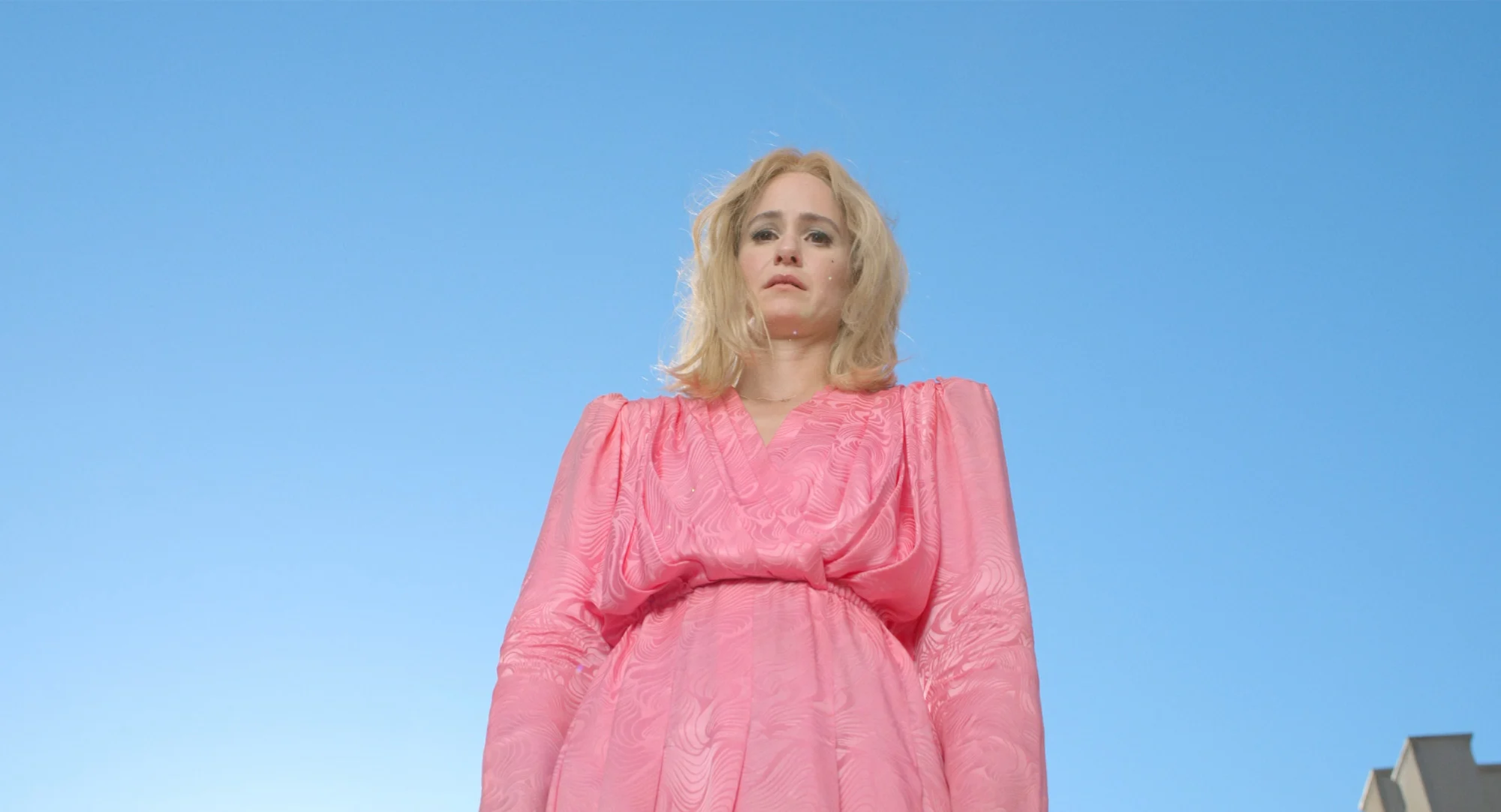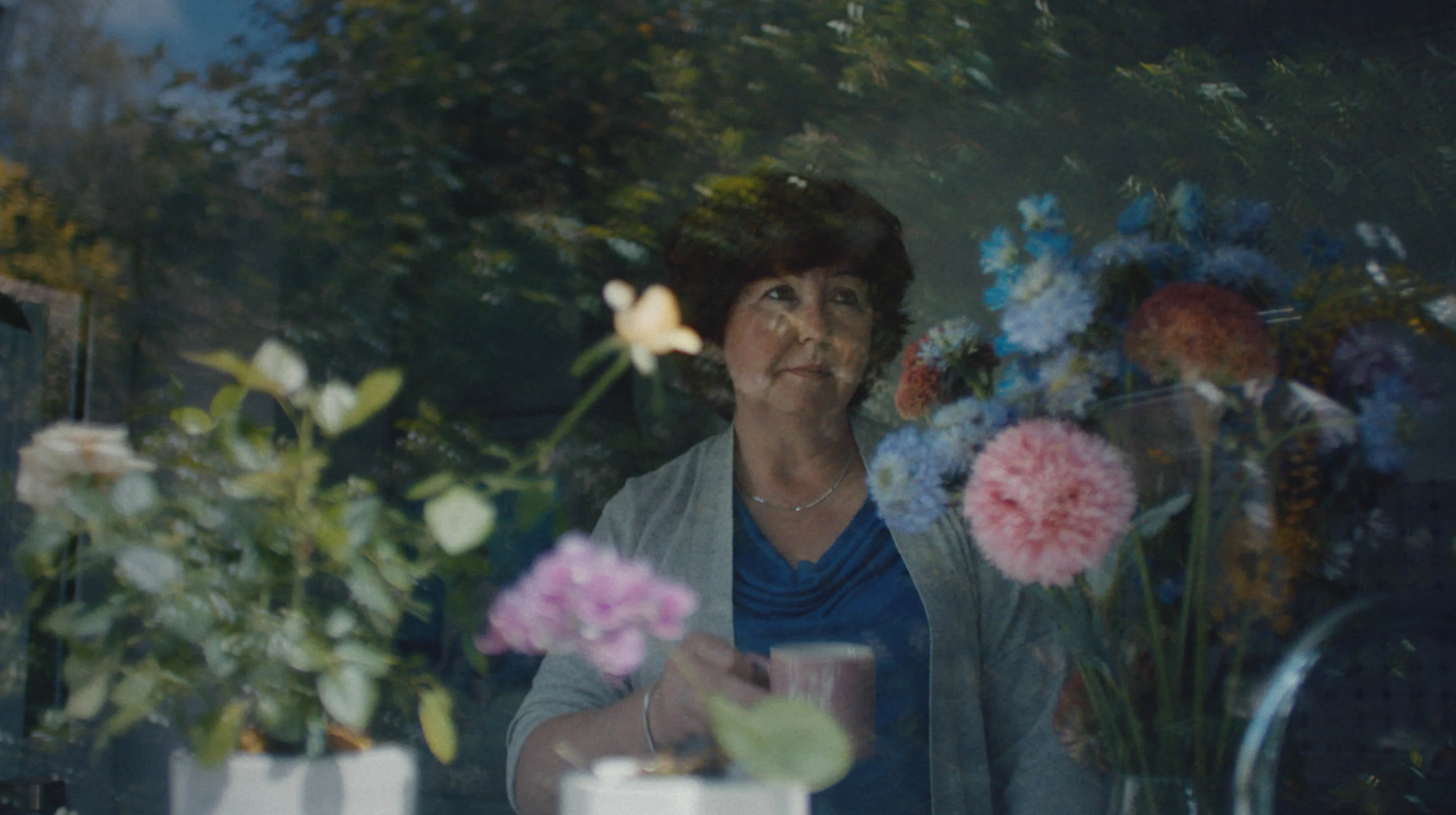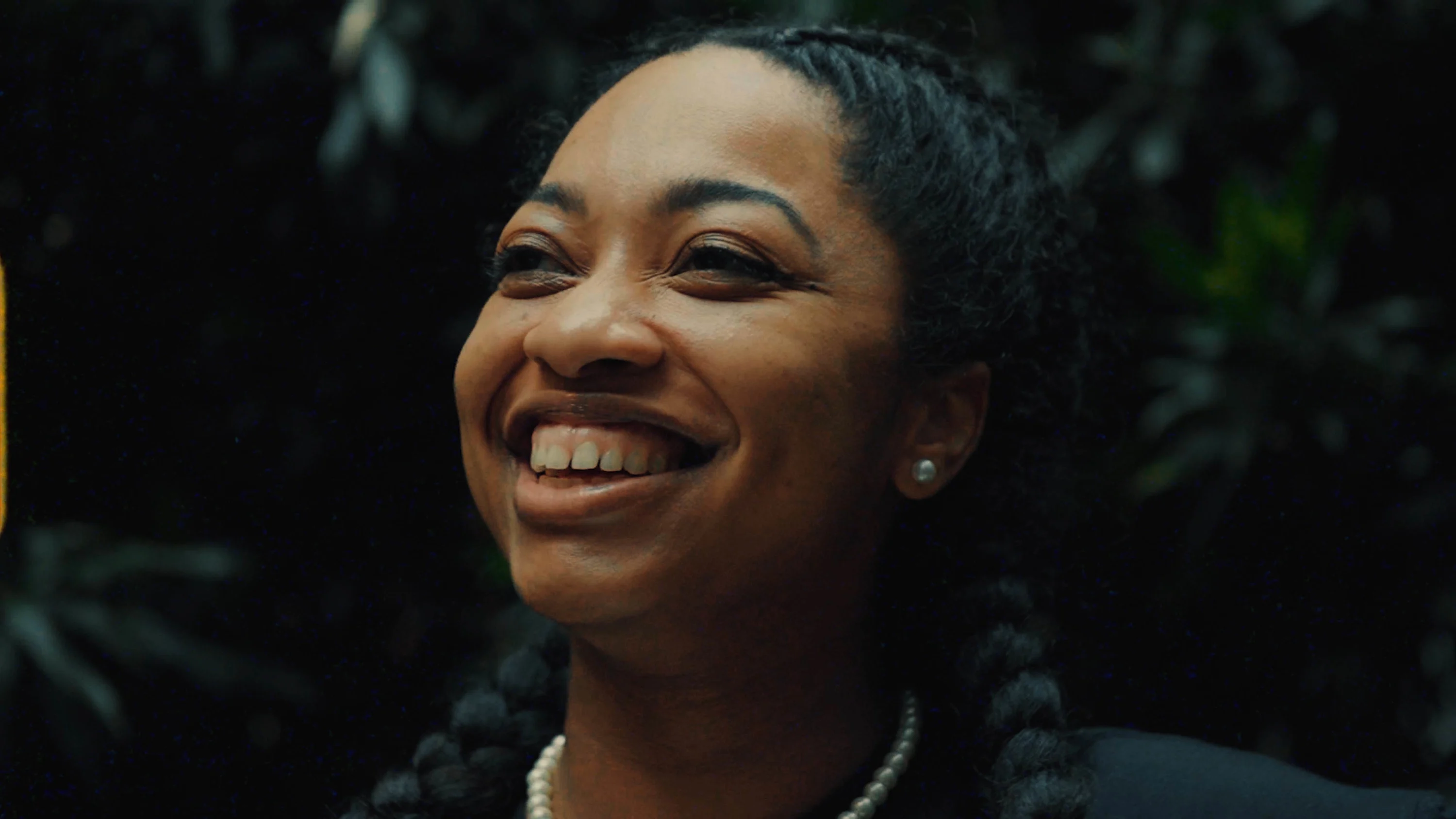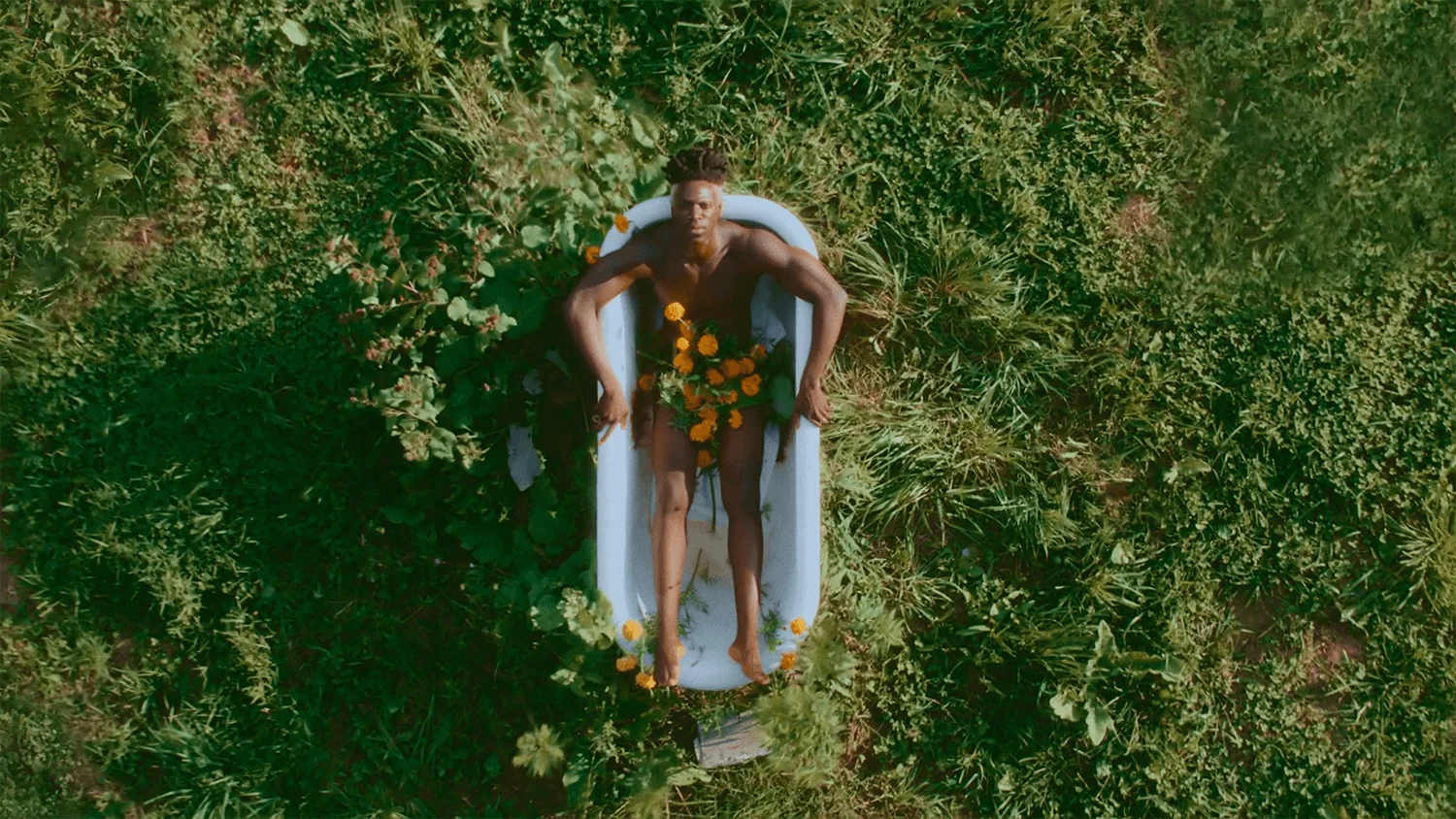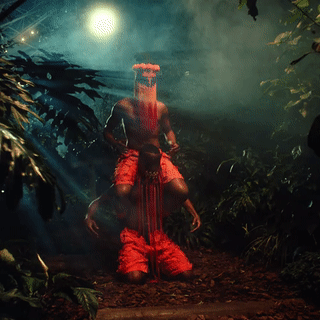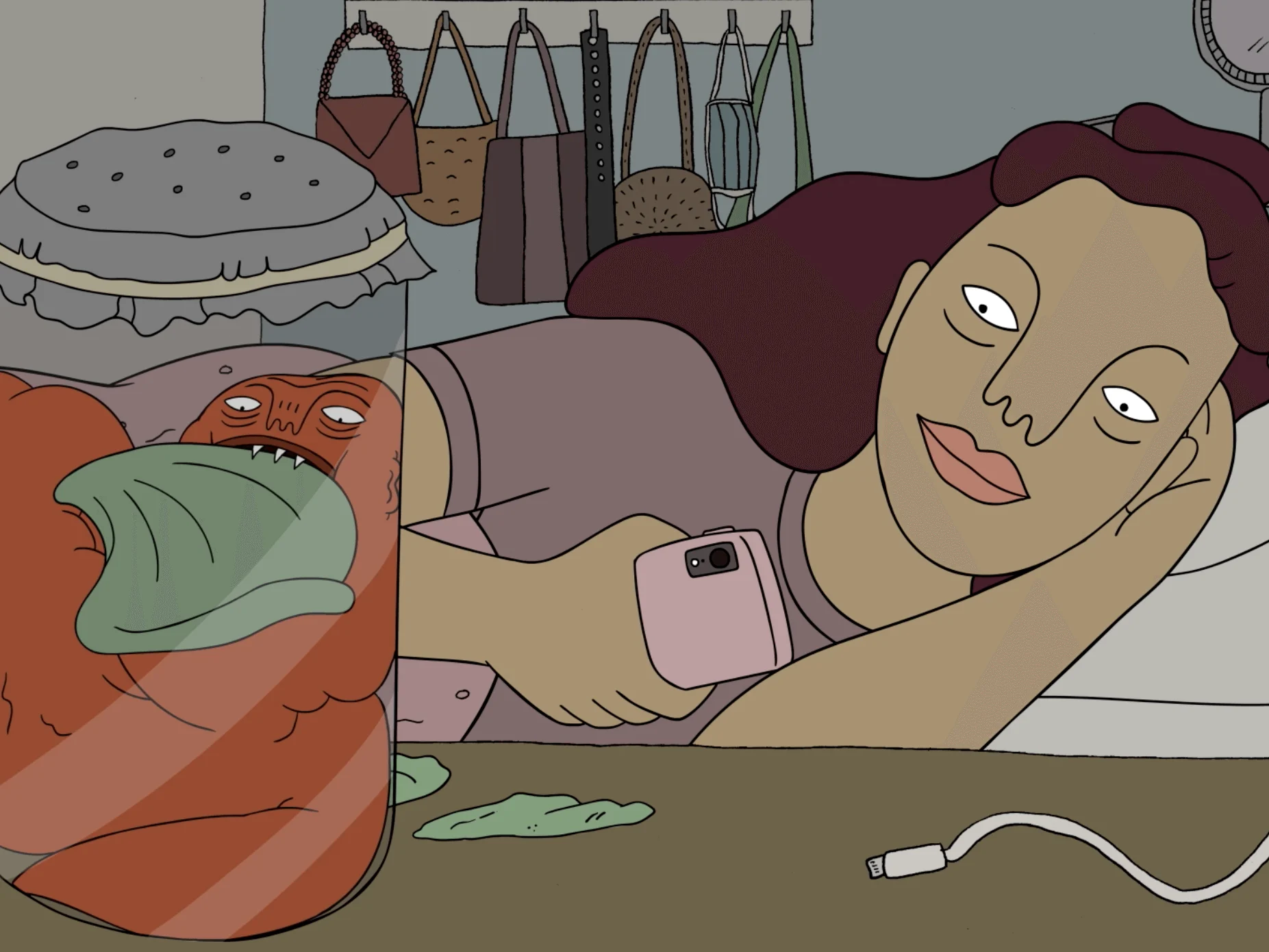
I Love You, I Hate You — Our cinematic collaboration with Little Simz
Our cinematic collaboration with Little Simz
In 2021, Little Simz released Sometimes I Might Be Introvert, an album already being hailed as one of the most exciting records of modern times. Keen to further explore one of the more personal tracks, I Love You, I Hate You, Simz opened up a conversation with WePresent, and together we began work on a cinematic collaboration to symbiotically accompany the track. Writer Natty Kasambala traveled to the set of the short to speak to Simz and her collaborators about this extraordinary artist’s filmmaking debut.
Behind the scenes photography by Tamiym Cader.
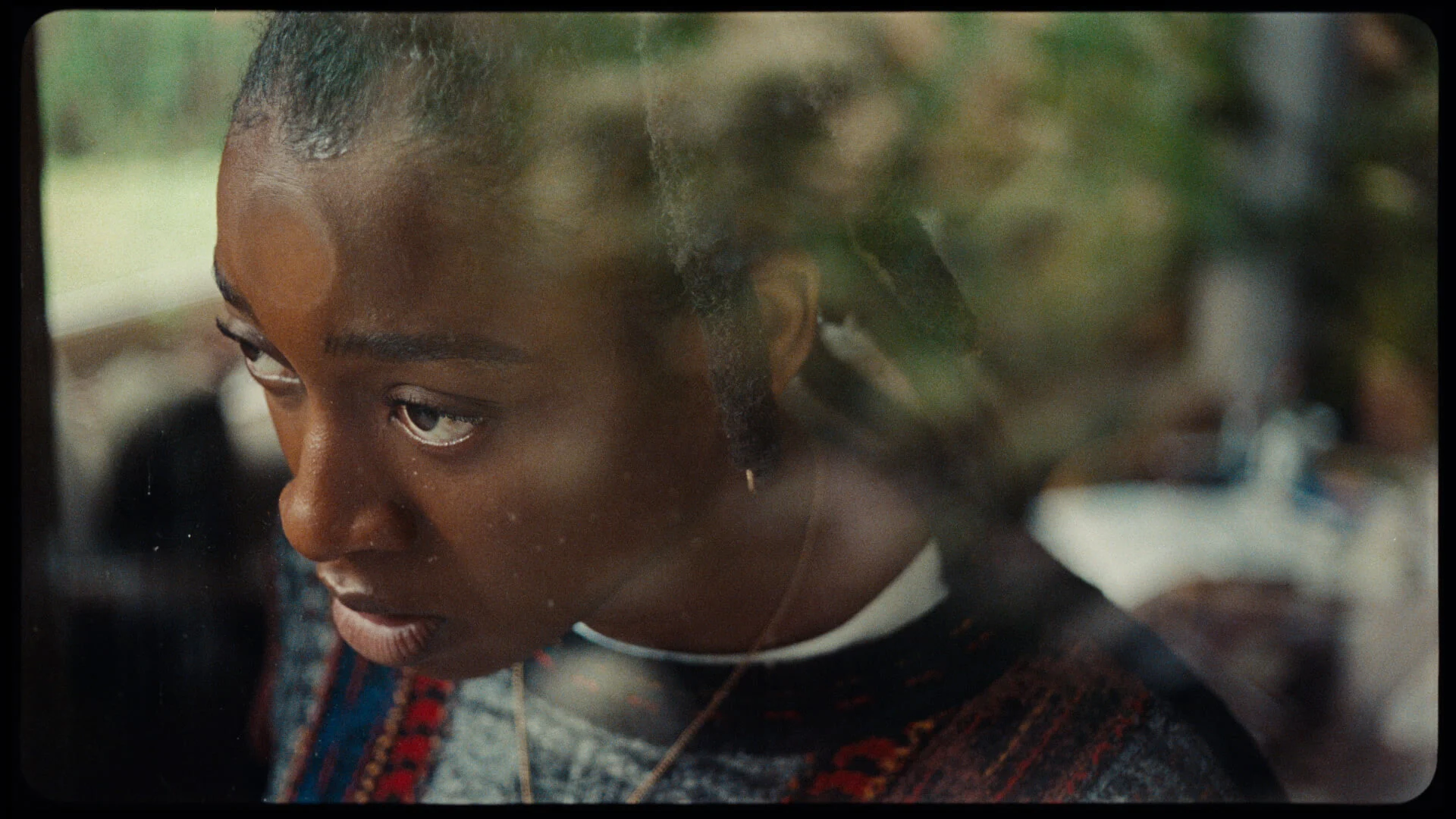
I’ve written my whole life and I’d say I’m a confident storyteller, but I’ve obviously never done this medium before.
“I’m not forgiving for you, man, I’m forgiving for me.” The sign-off of Little Simz’ last verse on her soul-baring anthem, I Love You, I Hate You, hits with razor sharp candor and practicality. And it’s that very same sentiment that molds and fuels her debut short film that takes the same name.
A narrative centered around a young Black writer called Sage, her partner Omar, and her longtime friend Annie, the 22-minute piece stars Little Simz herself, as well as actors C.J. Beckford and Shaniqua Okwok. We’re granted a glimpse into their lives as Sage battles with persistent writer’s block that ends up impacting her relationship and pulling at the thread of her well-buried emotional baggage. It’s a fictionalized story, inspired loosely by Simz’ own experience, with intertwined personal and creative breakthroughs that occurred through the process of writing her studio album, Sometimes I Might Be Introvert, unpacked most overtly on I Love You, I Hate You.
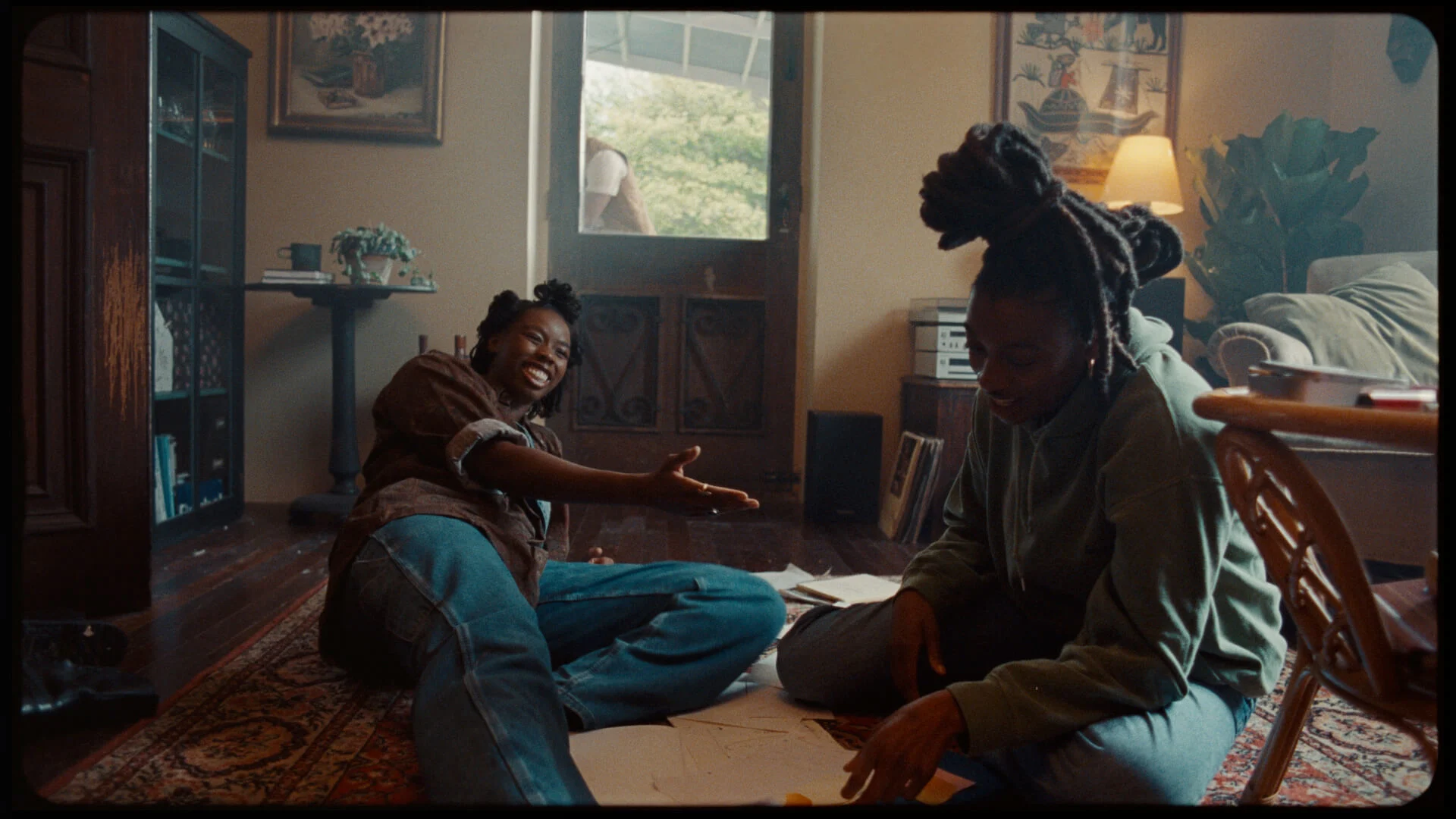
Unearthing her long-swallowed feelings toward her absent dad and their relationship, the track is a standout on arguably her most critically-acclaimed and indisputably her most commercially successful album yet. Announced with widescreen orchestral fanfare, a bumbling bassline, hyperactive drums, and a vocal loop that tosses and turns between love and hate, the single draws on Simz’ own journey coming to terms with the complex and often-conflicting feelings she found herself holding for her father.
Her story of parenthood, betrayal, and father-daughter dynamics is a compelling one. One that has resonated on a huge scale with fans, and signaled a shift in terms of storytelling for Little Simz—an artist who has always been introspective and emotive but who also maintained a substantial layer of discretion between her public and private life. However, this debut short film reinterprets the message of its namesake song with a far broader perspective. With a script written by poet Caroline Adeyemi, and directed by Sam Pilling, the story the team chose to tell here is the less obvious one: a meditation on unresolved trauma, and the recurring role it plays in one’s life in terms of creativity, expression, and interpersonal relationships.
I just wanted to make sure that they were honest characters, just like we are in life, with room for improvement.
The film sees main character Sage, played by Simz herself, as a writer navigating through a mental block while staying at her grandmother’s old home with her long-term boyfriend, Omar, played by actor C.J. Beckford (Big Age and I AM Danielle). When Sage reconnects with her childhood friend Annie, played by Shaniqua Okwok (Lovers Rock and Wolfe), her avoidant tactics toward work and her own emotions reach breaking point. It’s a concise yet intimate portrait of the unraveling that follows when the emotional baggage of our past catches up with us in the present day.
On set, in a rural corner of Kent, the narrative takes place at a cottage clad in white beams with a weathered baby blue roof and a rambling garden. It’s a picturesque structure that feels as at home in an English countryside as it would be in the American Deep South, with the only giveaway being the cold, crisp, and slightly dewy British morning air. Inside, a series of grand doorways, old tapestry rugs, and the scent of sandalwood incense flow from room to room, setting the mood for a palm reading scene filming first. The solid wood floors creak unwillingly, books collect dust on the shelves, and plants creep up window frames in a way that would feel a little Midsomer Murders-meets-Get Out if it weren’t for all the cast and crew filling the space with vibrant, buzzing energy.
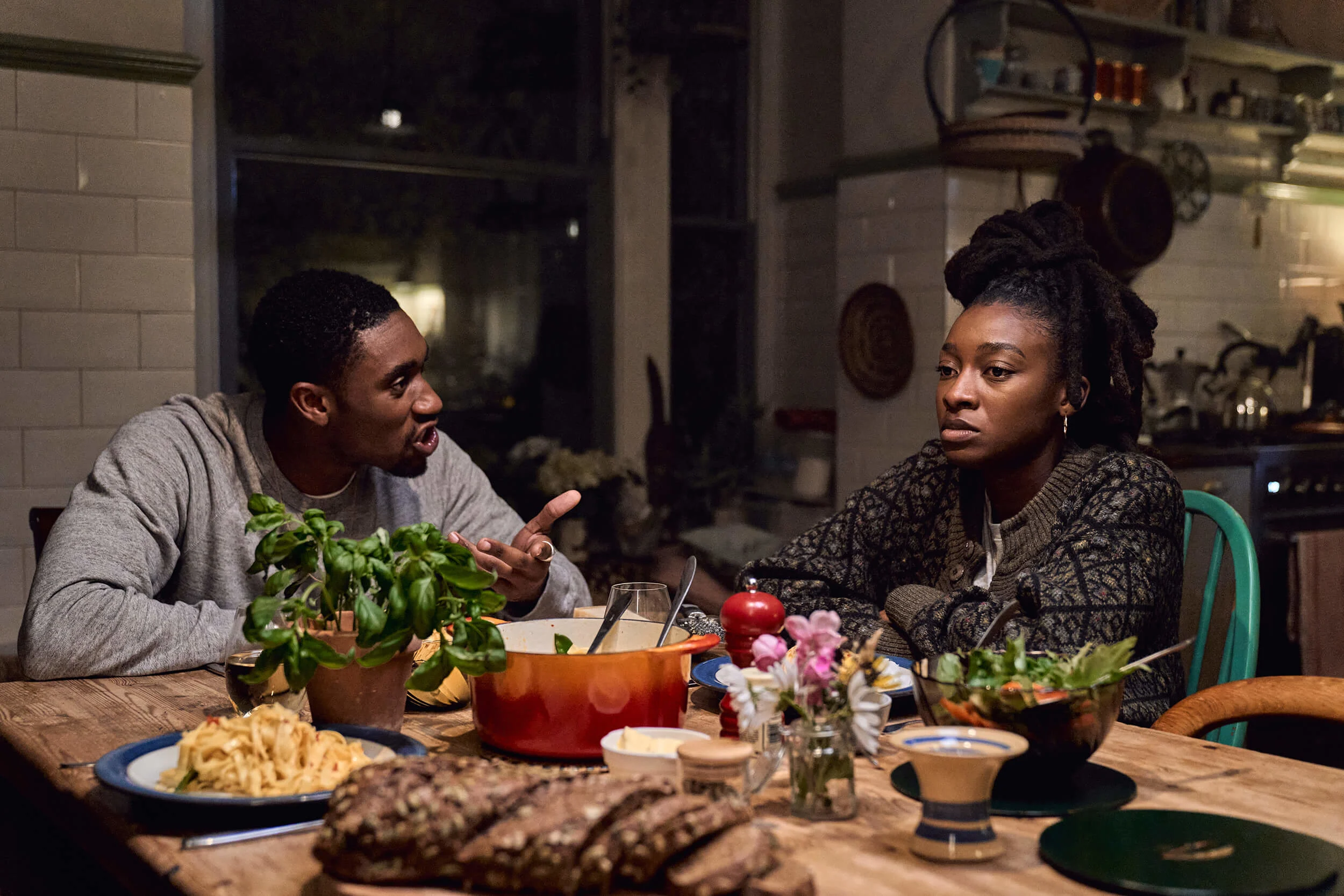
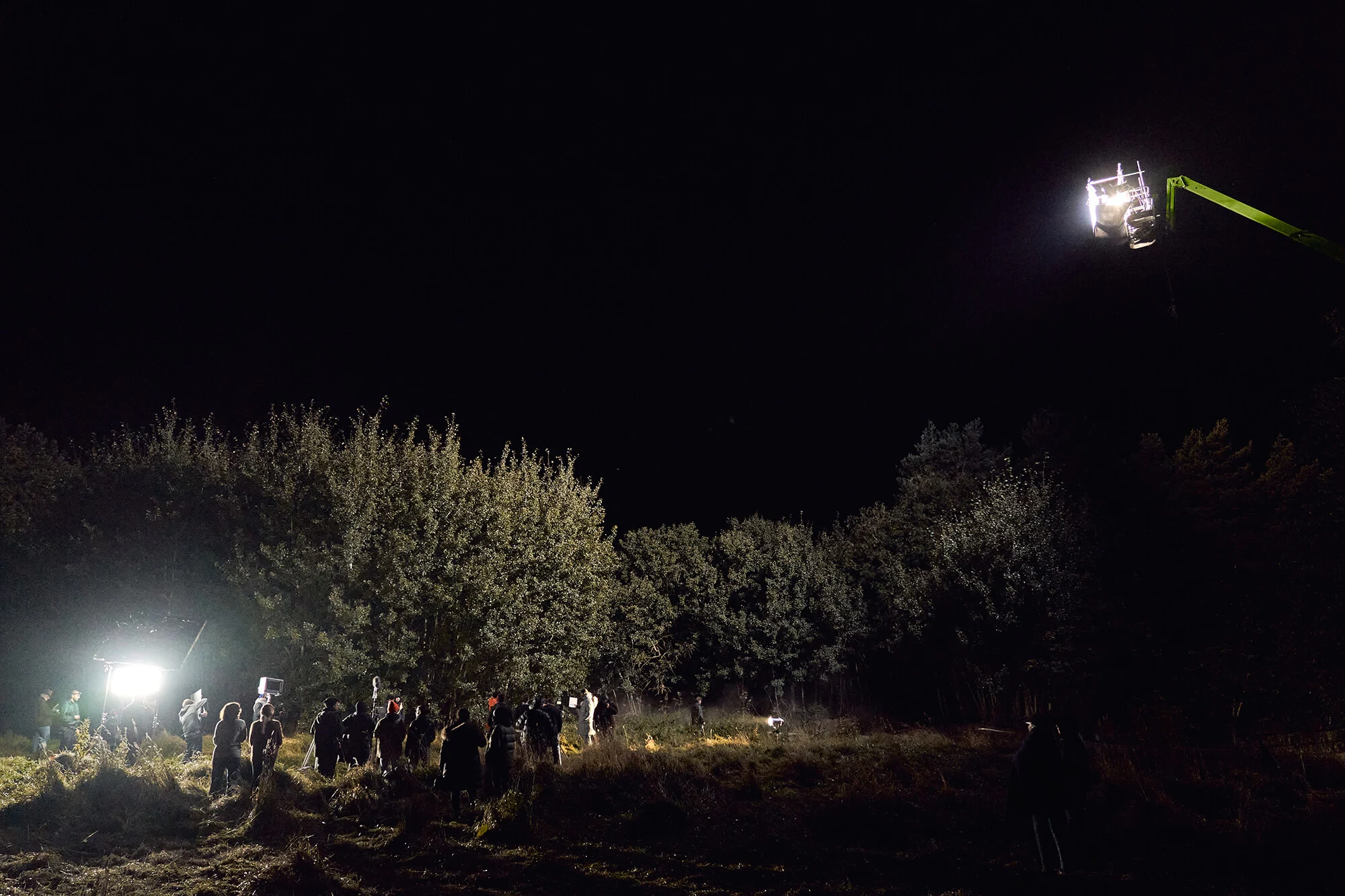
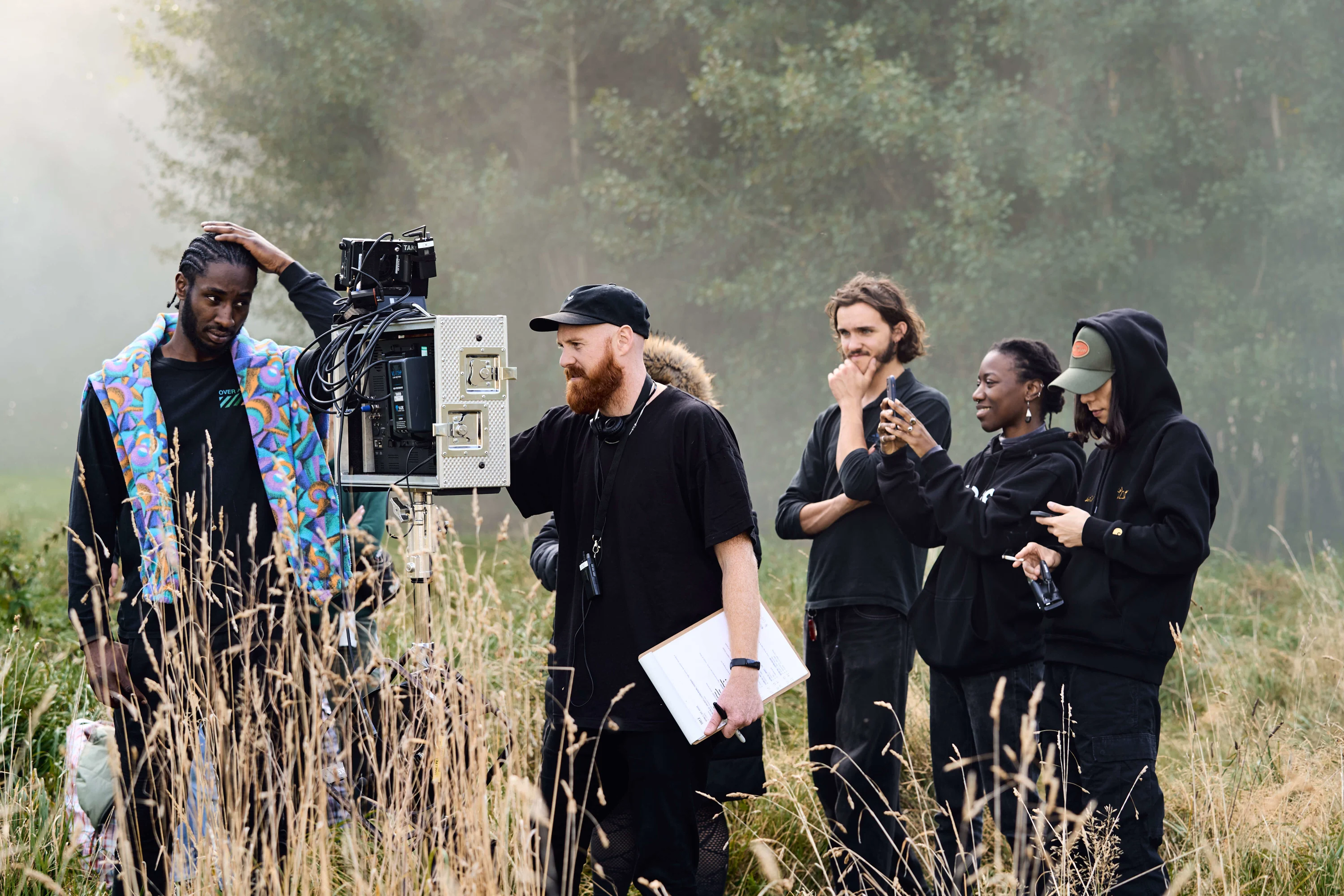
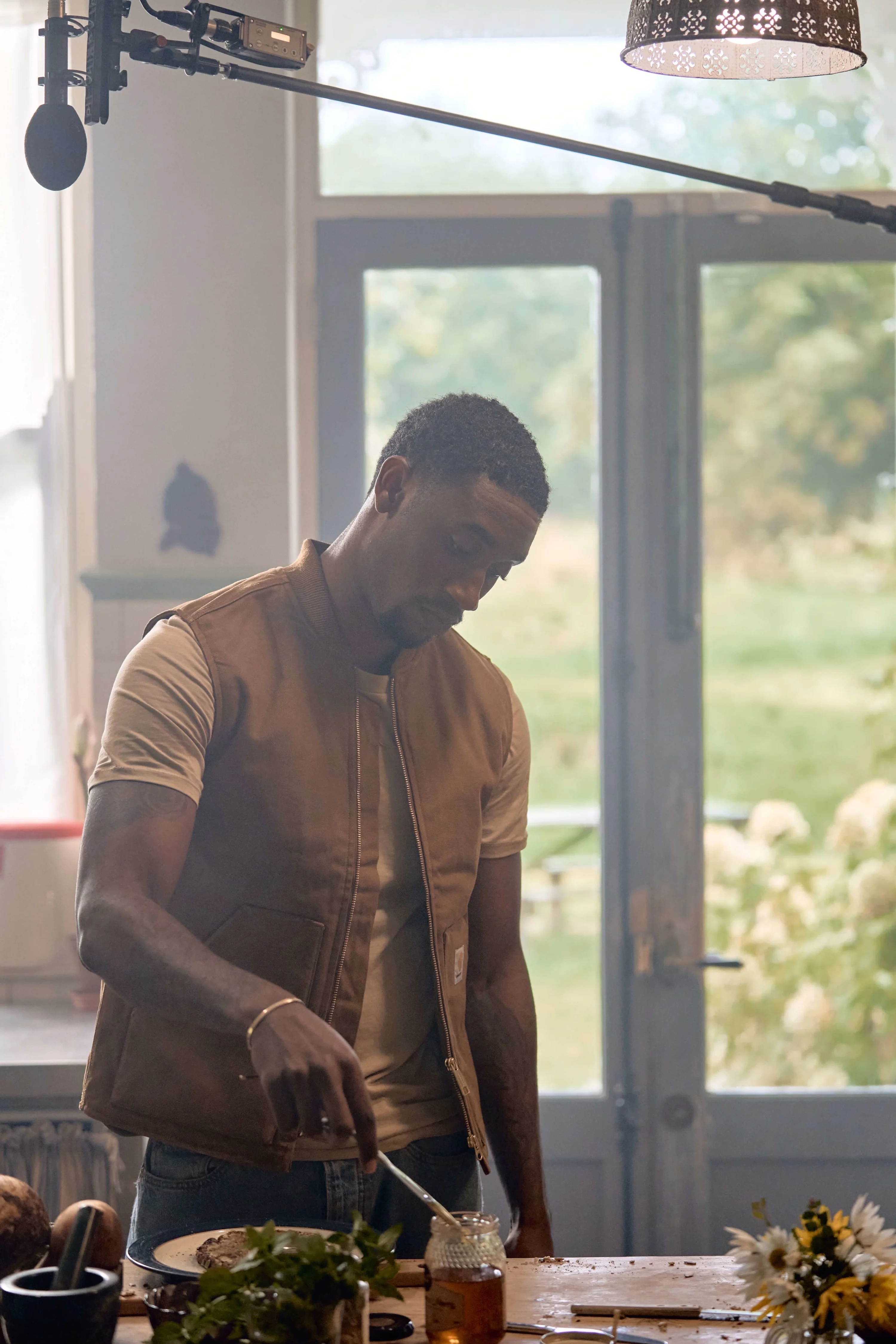
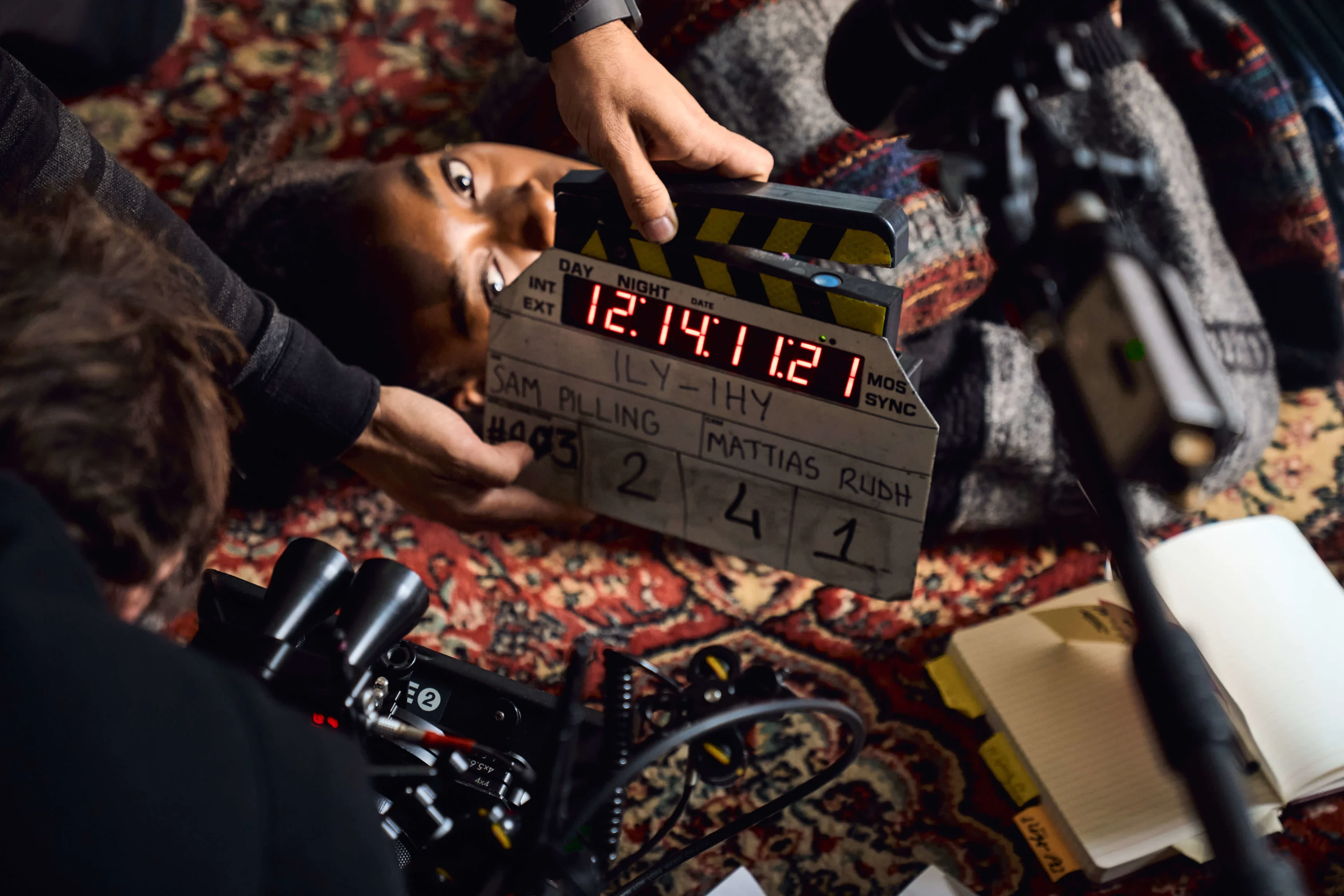
Nature plays a big supporting role within the film, too. It’s the center of Omar’s work as a gardener—a subject fit for his patience and attention. The looming forests that touch the house’s periphery become the ominous backdrop for frantic childhood flashbacks, a place for the unknown and the disappearing. But nature also provides a haven for Sage to retreat to in the first place, surrounded by green space and nurturing energy. This energy is also enjoyed by those behind the camera, too, for the most part. On set, Pilling jokes about flying spiders landing on the cast during the previous day’s shoot in between takes.
The short is an intimate study in empathy and the volatility of even our closest relationships when we fail to nurture them.
But in both the real world and the imagined, perhaps most crucially, nature mirrors the inner workings of our own ecosystem of mind, body, and soul. Toward the start of the short, Omar and Sage playfully debate the morality of the infamous carnivorous plant Venus Flytrap. While Sage considers the plant “bad vibes” for the threat it poses to its prey, Omar argues that it’s actually just a matter of perspective. The insects that see the flytrap and acknowledge its presence are able to keep themselves out of harm’s way, while it’s those that remain oblivious or blind to its existence that are at the biggest risk of falling victim to it. “That blindness will consume you,” he comments forebodingly. That philosophy becomes the driving force for the entire narrative, stemming from one of the biggest lessons learned by Simz while creating her own project.
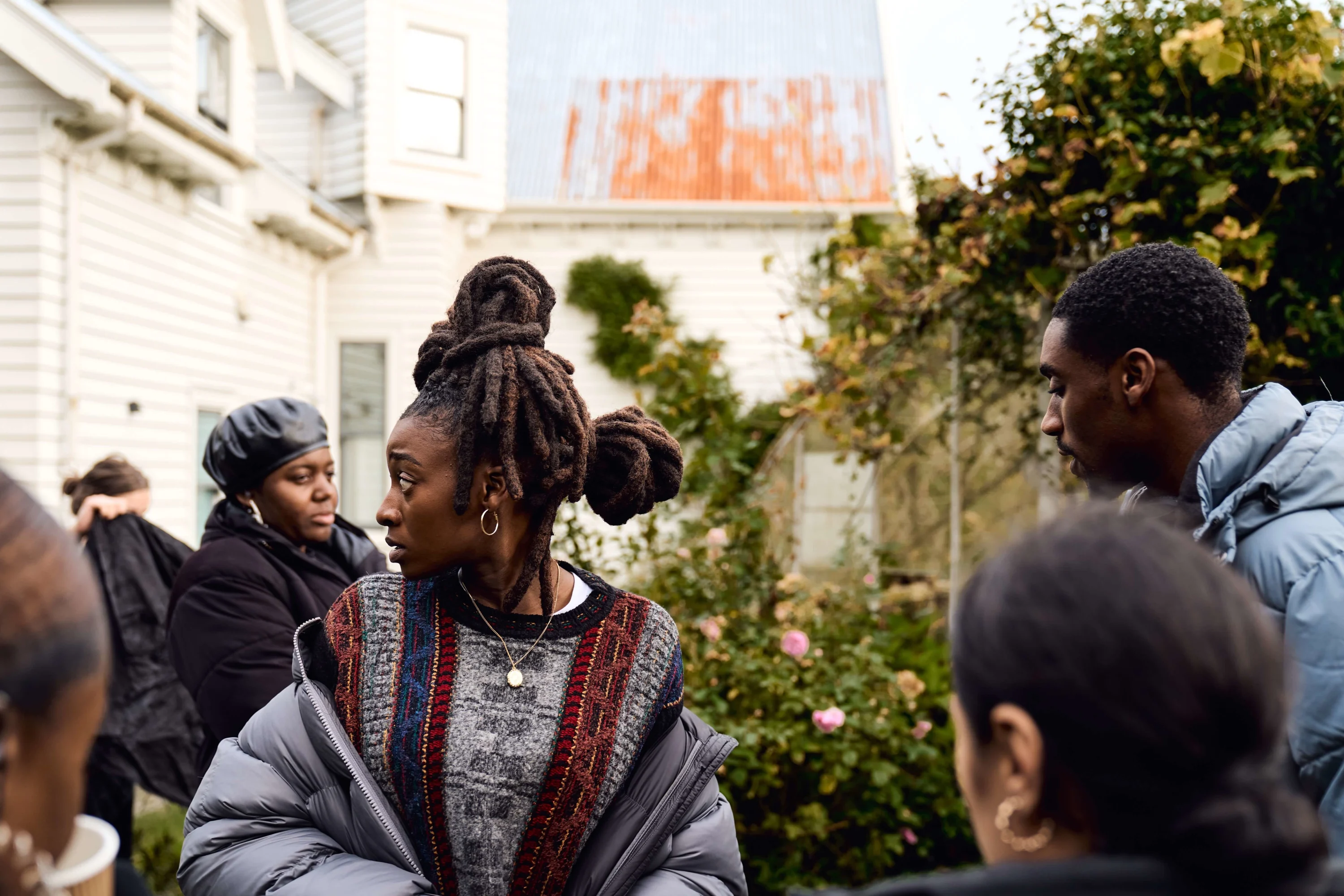
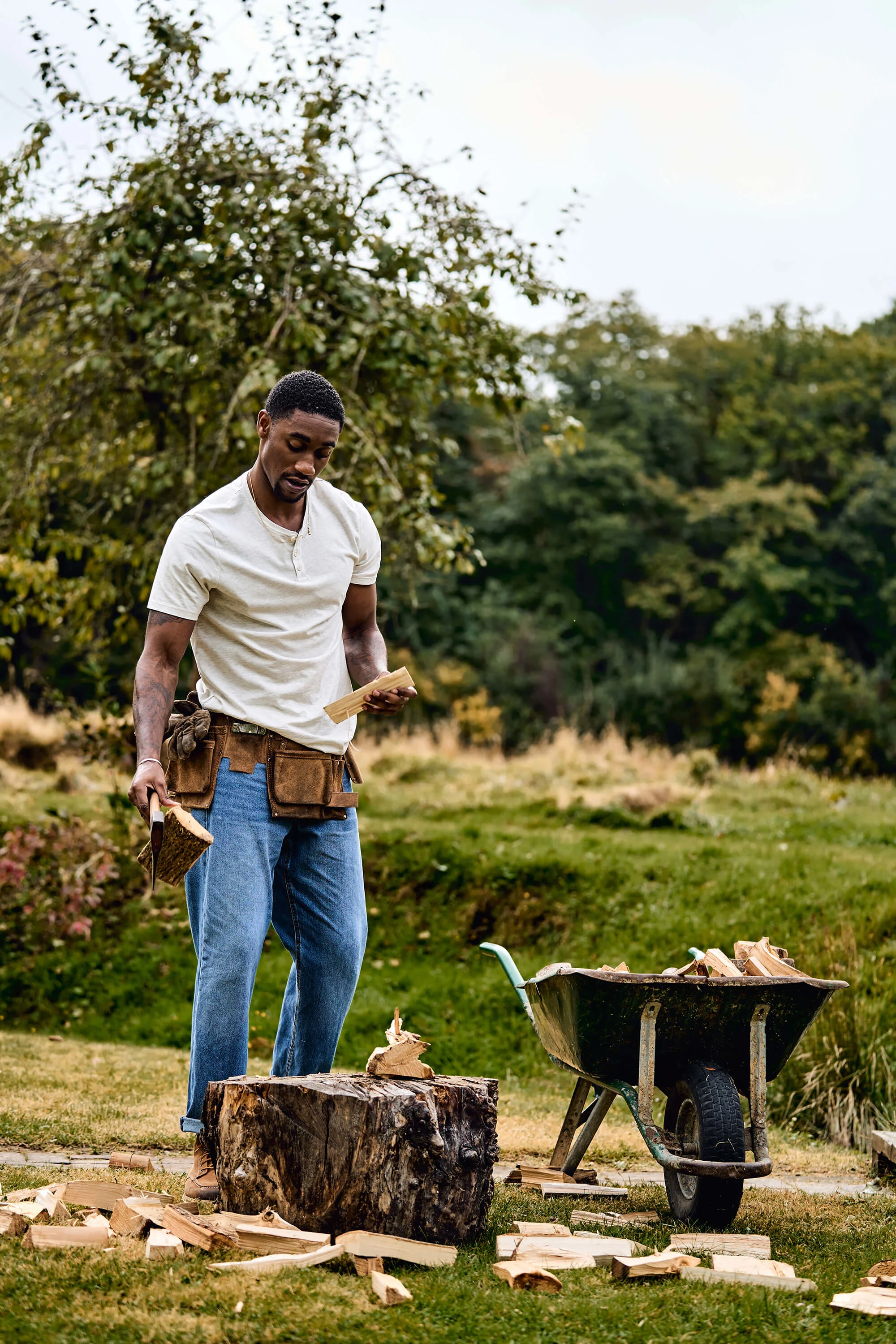
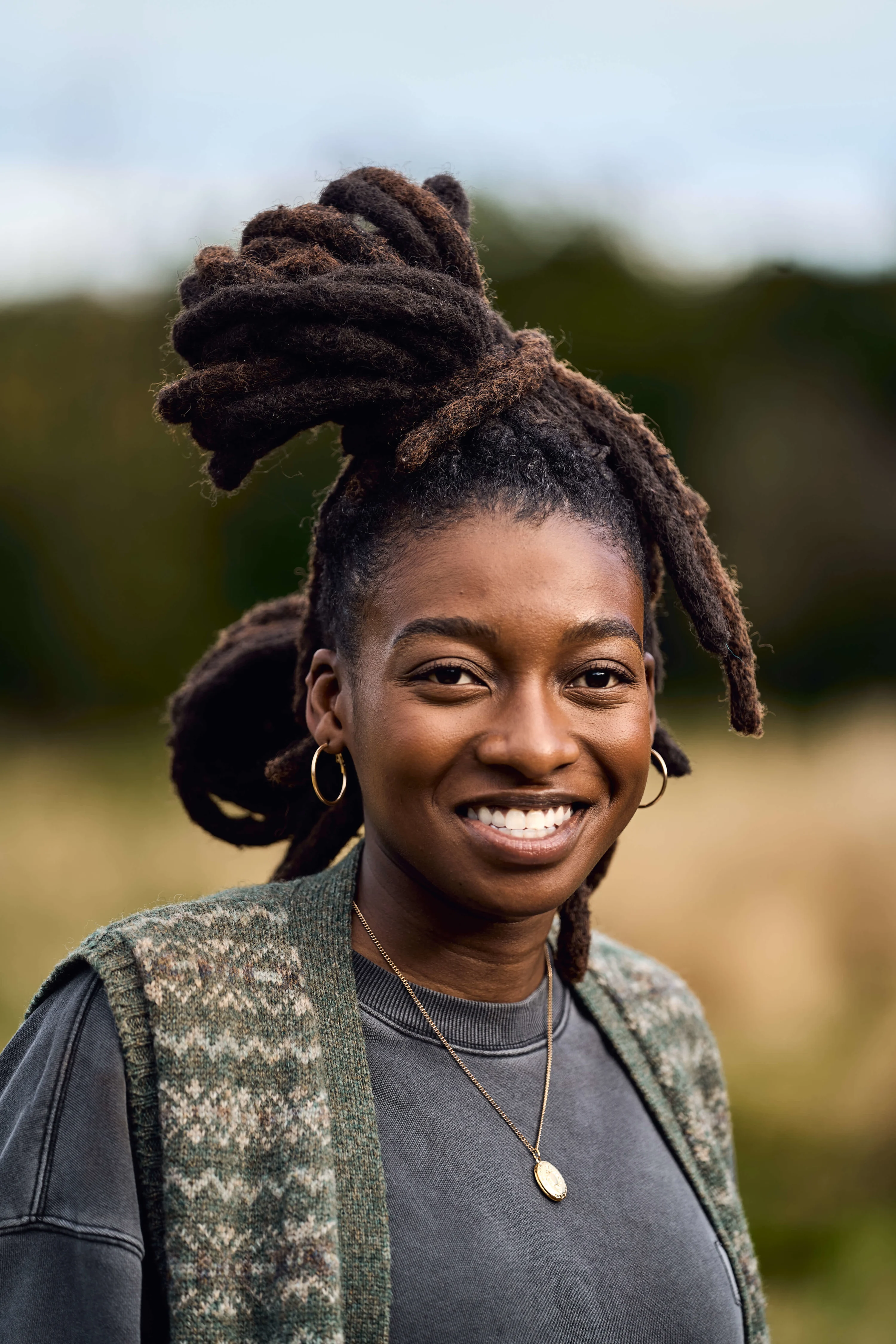
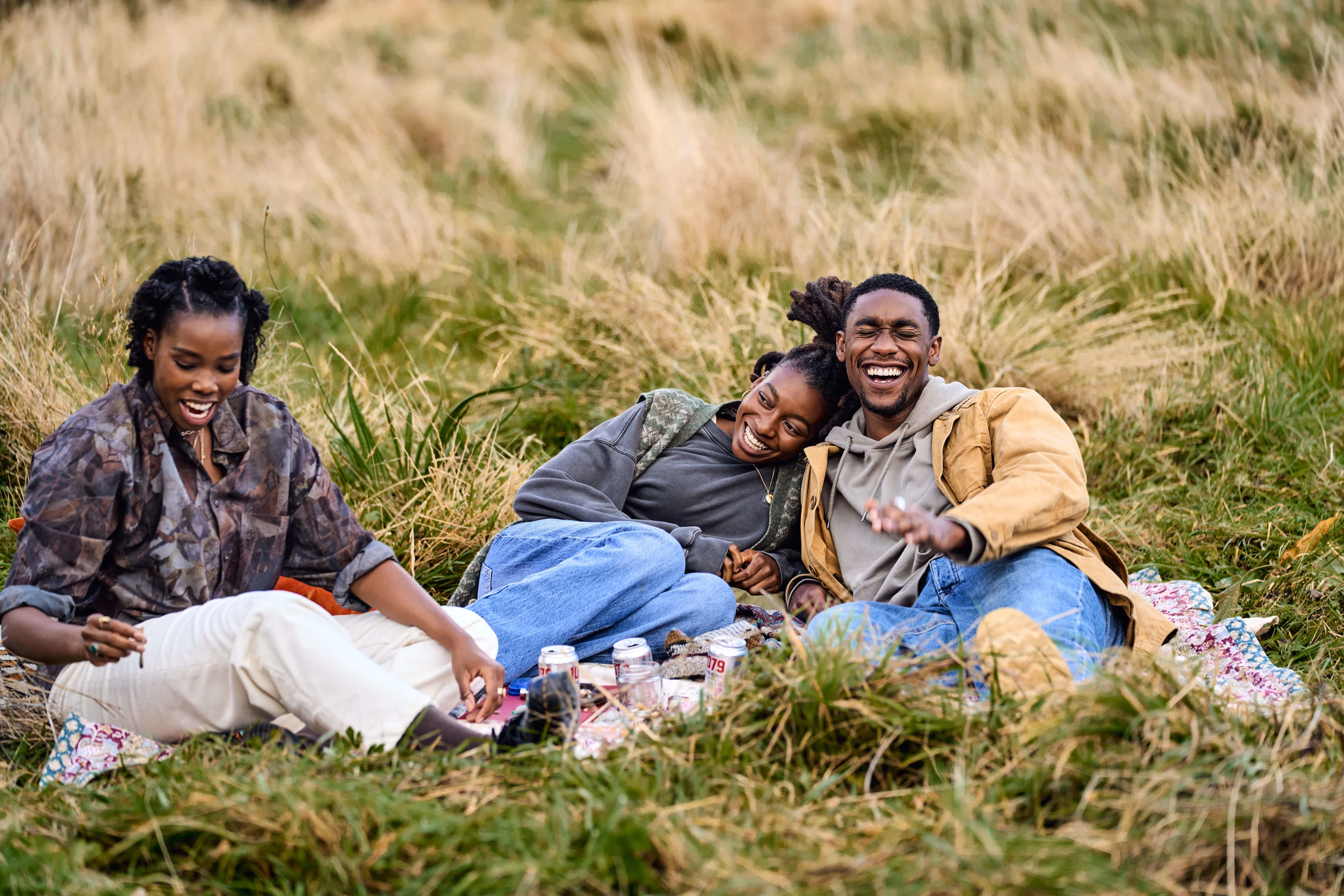
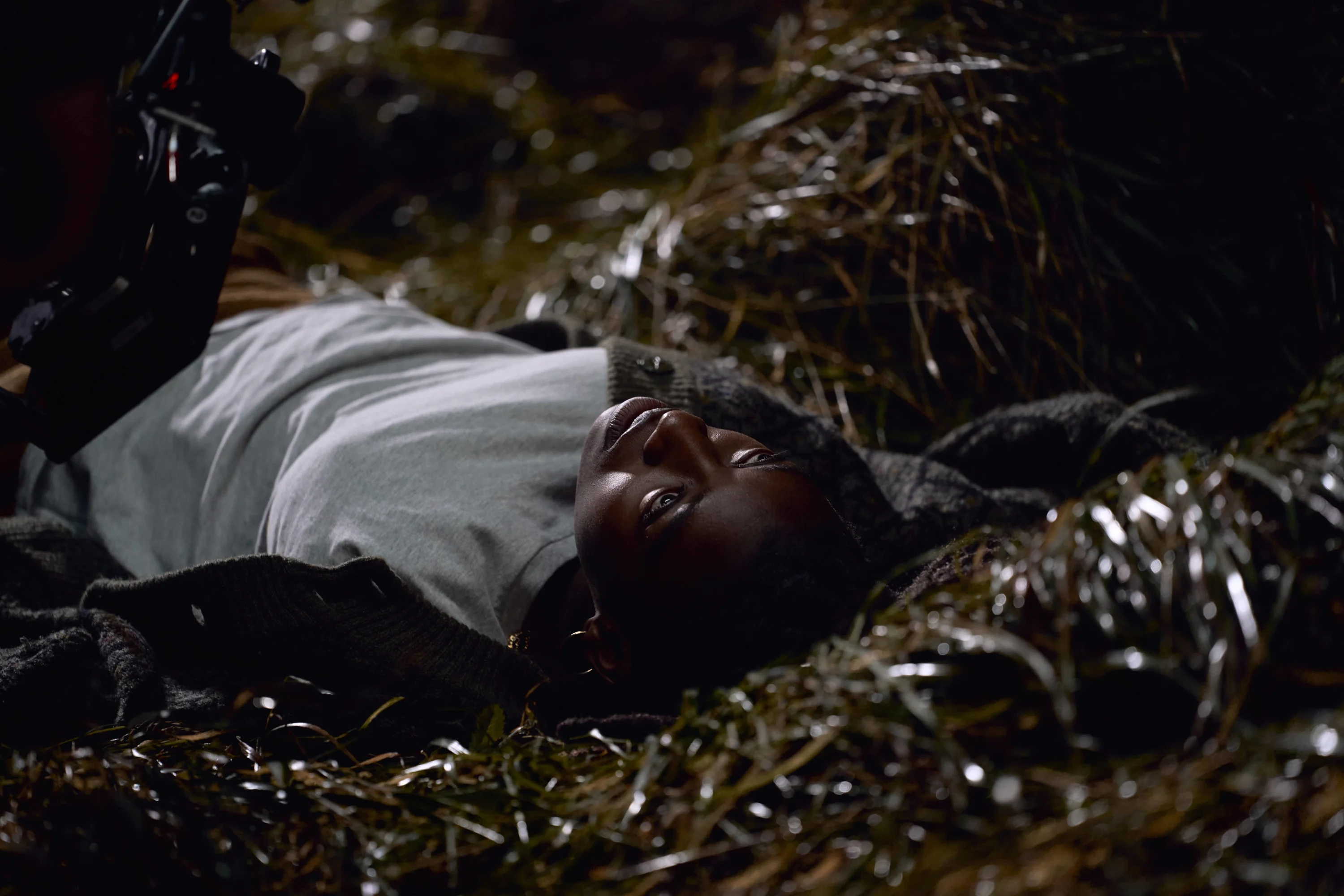
Shot over two days, the script for I Love You, I Hate You has seen many iterations. Between Simz, writer Adeyemi and director Pilling, all three speak of the challenge in constructing a compelling short film—driving it forward and keeping it interesting, “but also having to have this beginning, middle, and end in such a short space of time,” Simz explains. As it stands, the short is an intimate study in empathy and the volatility of even our closest relationships when we fail to nurture them, chronicling Sage’s struggle to push through her emotional blockage and the ripple effect of that on her life. Sage’s childhood friend Annie serves as a catalyst for her more escapist tendencies and inadvertently drives a wedge between her and Omar, the two sides of herself. Eventually, the pressure boils over for the couple and —with the help of some mild hallucinogenics—Sage is forced to reckon with the pain her inner child is still navigating through.
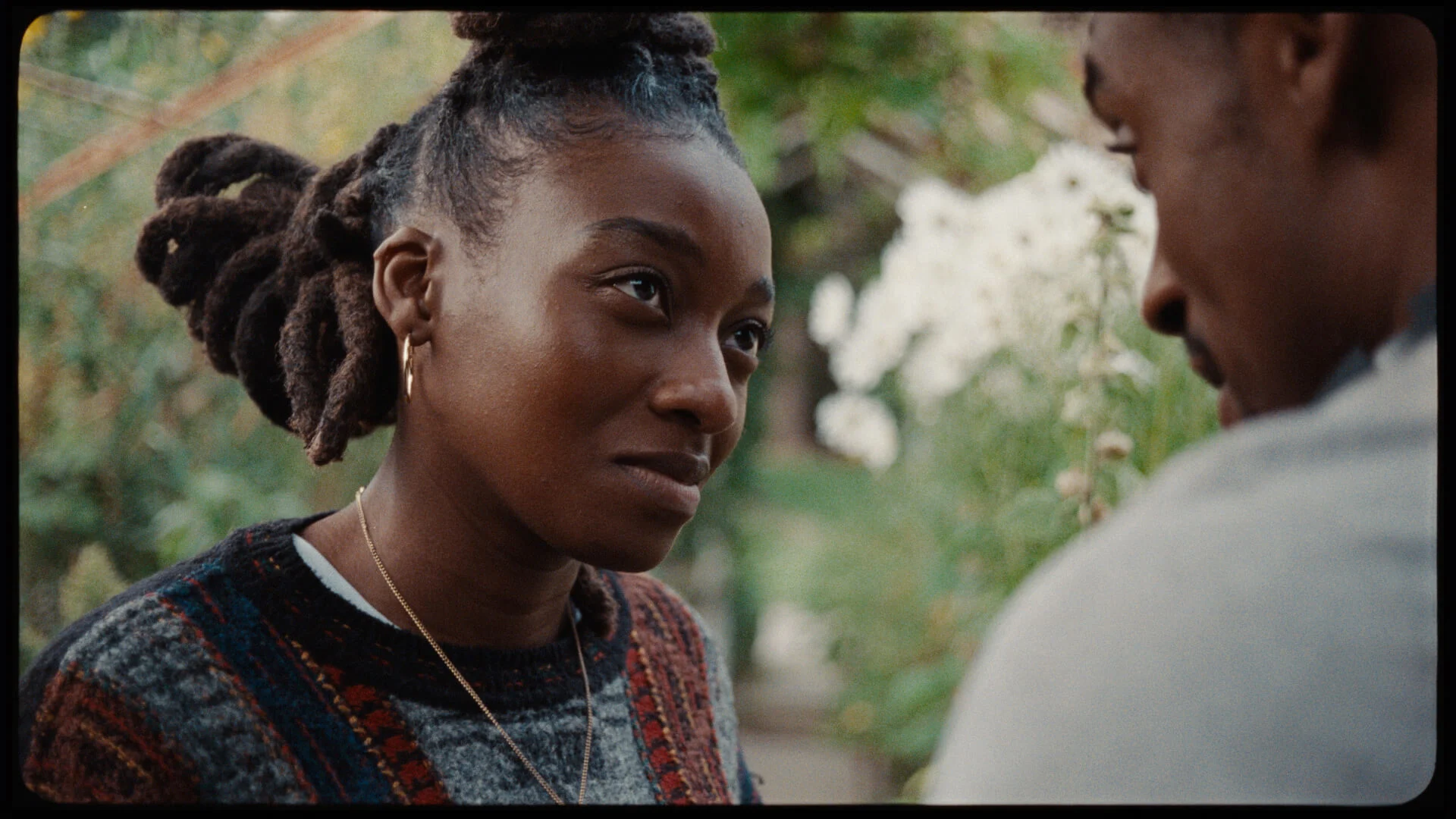
In a sparse, dusty guest room of the house, writer Adeyemi, who’s Simz’ cousin, tells me how she remembers the first email she got about the project. Simz had the character names, Sage and Omar, she wanted it to be based on I Love You, I Hate You, and she had an outline: Sage and Omar are in a relationship, but the baggage of Sage’s relationship with her dad in the past starts to bleed into their own. From there, Adeyemi had free rein to explore. “I’ve written my whole life and I’d say I’m a confident storyteller, but I’ve obviously never done this medium before,” she explains. “I didn’t go to film school, I haven’t analyzed scripts or anything like that, so it was actually nice to not have anything to compare it to.” And she had Simz’ full support: “I think her writing is beautiful, she does a lot of poetry and short stories[…]. I thought it would be dope to just try something new, and if I’m in a position to do that and I think someone’s talented and hardworking and a good person,” Simz poses the question to no one in particular, with an audible smile, “why not collaborate, why not make magic?”
After the first draft, which she describes as “restrained,” Adeyemi had the idea to try to stretch the script to its furthest extremities in order to find its boundaries. “I thought okay, I’m going to do [a draft] that is just me exploding the whole thing out, to cross the barriers, and see where it can go? It was a mess,” she says, laughing. The main plot remained intact, but the functions and themes were more experimental, more metaphorical, more drastic. A big fan of experimental filmmakers such as Lars Von Trier, Adeyemi is amused as she recalls, “There was a wolf! It was heavy on the symbolism of the moon, that kind of stuff.”
Why not collaborate, why not make magic?
In the end, after countless back and forth, drafting, and redrafting—even I’ve been sent two or three different versions of the film over the course of writing this article—the full team landed on believability as a guiding principle. Simz says: “I definitely left the visual side to Sam and the writing side to Caroline, but my thing throughout was just: Do I believe it?” From the conversations to Sage’s actions to the connections between Annie and Sage and Sage and Omar, authenticity was the crucial thread, much like within Simz’ own music.
For Adeyemi, that meant allowing space for flaws, too: “With Sage and Omar, I really wanted it to be clear that they were a healthy Black couple. But also everyone’s got their own stuff to deal with and being emotionally secure in one way doesn’t mean that you’re 360° perfect,” she says. “I just wanted to make sure that they were honest characters, just like we are in life, with room for improvement.” It was that humanity and slightly flawed dynamic that drew Pilling to the project, too. “When Simz first came to me with the idea, I just really liked the dynamic of [Sage and Omar],” he says. “There were some really nice moments of things we can all relate to, the ups and downs of relationships, the interplay and the very real emotions of it. Nothing in it is really high drama, but it’s just the turmoil and the waves of life.”
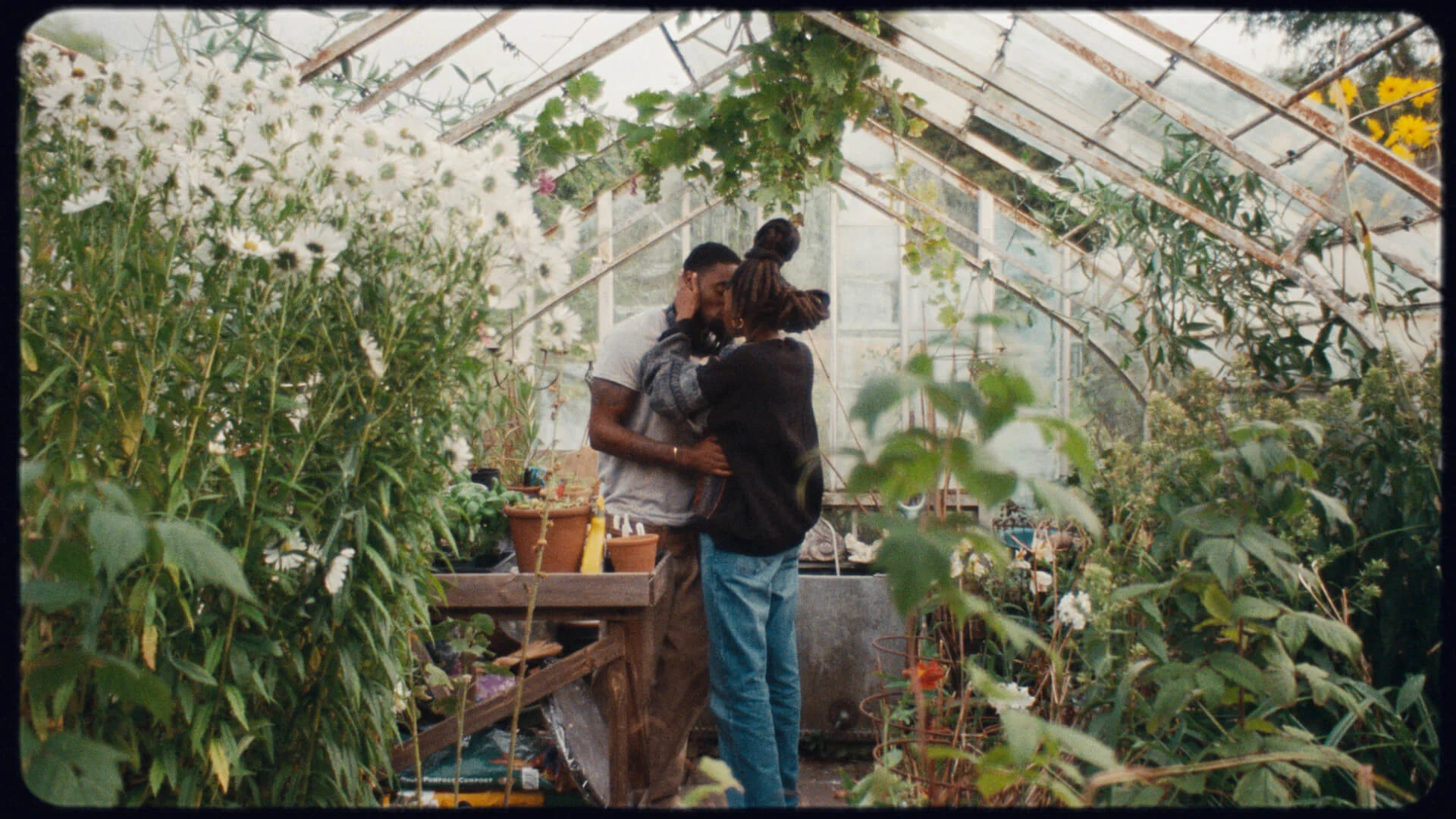
Where the song is more overt and gut-punching, the film carries a broader, more subtle perspective. If the track is a tide of emotion coming in, the film sketches out the drops that make up the ocean. Toward the start of the album writing process, when tasked by her producer and long-term collaborator, Inflo, to write a song unpacking the thing that she was most scared to write about, Simz’ instinct was to bury the pain of her relationship with her father deep down inside her. She reflects, “I definitely was reluctant to write it, like I didn’t really want to discuss this, to give this man a stage. I just wasn’t fucking with it basically.” But eventually, she gave it a go, “and it felt like, ‘Okay, I’m actually letting go.’” In identifying the source of some of her unhealed scars, she found herself able to totally reframe the dynamic.
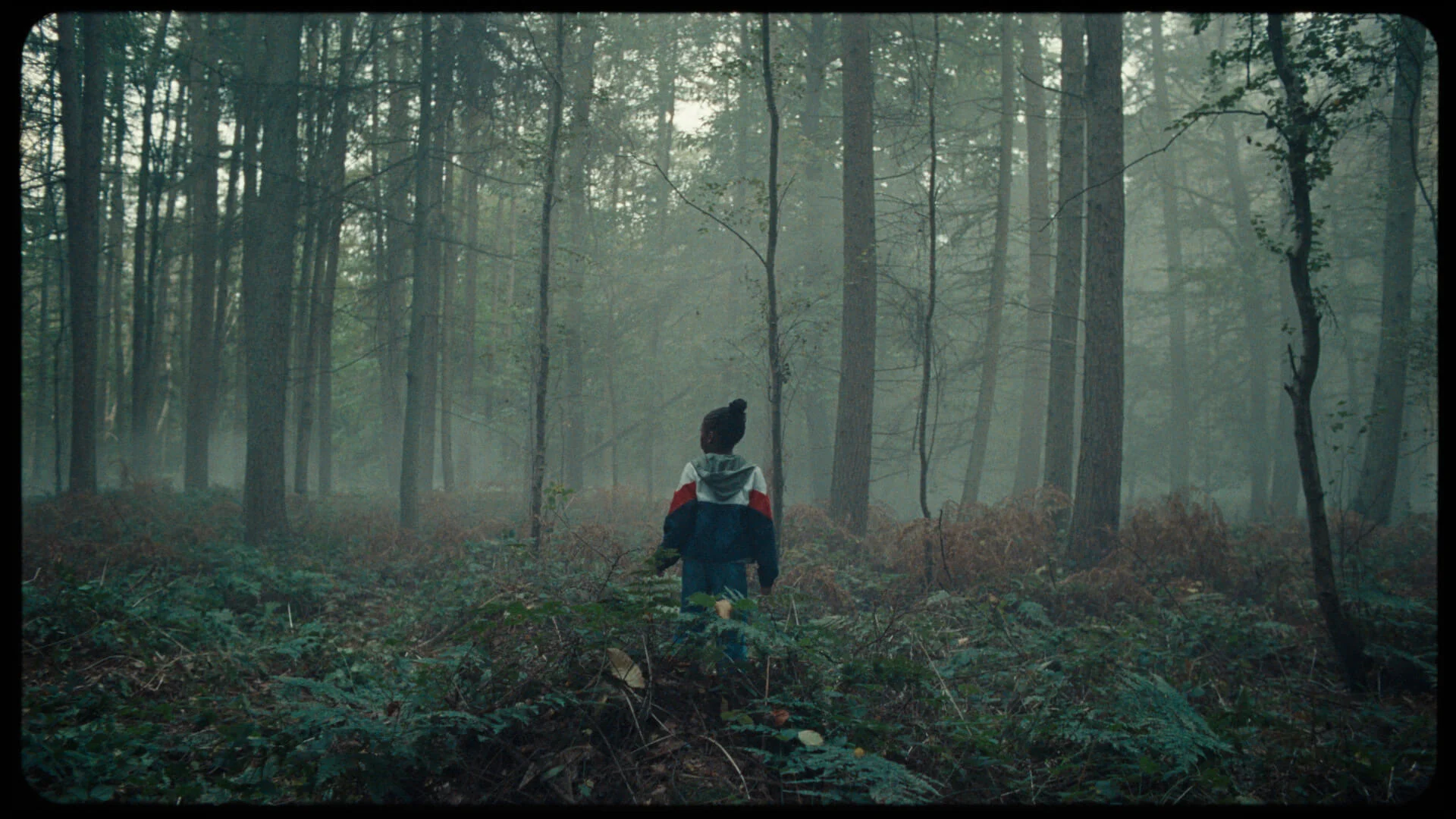
Sometimes your best work or your best creation can come from something dark or negative, and you can embrace that and give it new life and new meaning.
“I think that’s the essence of the song, trying to humanize this person and understanding that they’re just a person first, with their own flaws and their own complexities in life,” she says, pausing briefly before adding, “and it still made me the person I am. So, as much as it was painful and whatnot, I love who I am today and maybe I wouldn’t be this person had it been any other way.”
What resulted was a raw, explosive declaration as Simz contemplates not just the deep-rooted pain of their relationship but also her own journey to looking it directly in the face: “Too much unsaid now the silence givin’ me headaches / Only through speech can we let go of all this dead weight,” right through to “Never thought my parent would give me my first heartbreak / Anxiety givin’ me irregular heart rate / Used to avoidin’ and then hide how I really feel about this / Now I see how fickle life can be and so it can’t wait.”
Ultimately, Simz admits that by embracing the cards she was dealt, it loosened something within her when approaching the rest of the project, too, and the world. “I think it just showed me, ‘don’t be afraid to go deep.’ Don’t force it, but if there are things that are really bothering you that you want to speak on… It just gave me a bit more confidence to go there.” It also taught her an invaluable lesson that she hopes to pass on to all who watch this piece: “Sometimes your best work or your best creation can come from something dark or negative, and you can embrace that and give it new life and new meaning.”
The first time Simz and I met virtually was a few months before the official release date of Sometimes I Might Be Introvert, where I could only speculate on the huge impact that I believed the project would have on all who heard it, as well as culture itself. At 19 tracks long, it’s an odyssey into Simz’ psyche that’s as emotionally and sonically expansive as we’ve heard her yet. From afrobeat to electro, hip-hop to disco, choirs to synths, there are few sounds that can’t be found within the project. Simz didn’t just tear up the rulebook, she set it on fire. Post-release, the record charted in the Top 5 and has been heralded for its creative and musical brilliance.
From her acting roles in shows like Netflix’s Top Boy to directing her own music video for her single, Woman, to now standing at the helm of this short film, it begs the question of what’s next to conquer for the North London artist. How has the process informed her next moves? “I think [this film] has just given me more fire in my belly to expand and explore. It just really shows me I can literally do whatever I want with my art,” she states resolutely. “As long as I’ve got people that are here for it and a team that are backing it, then I’m good. There are no rules.”









